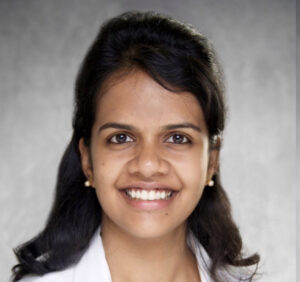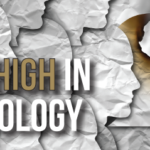“I moved from an institution where all the rheumatologists worked in the same clinic and saw patients together to a place where, in many of the clinics, I was the only practicing rheumatologist,” says Dr. Iyer. “All the meetings were virtual, so I never got to know another person—what their interests are or what their family was like or really anything at all.
“There weren’t any social events, and that really had an impact on my mental health,” she says.

Dr. Iyer
During that time, Dr. Iyer felt a keen lack of fulfillment, and she wanted more professional support and interaction with others in her specialty. She was so unsure about her work situation that she thought twice about buying a house. “I felt like I [didn’t] know if I [would] be here in a year just because I never had the opportunity to interact with another rheumatologist in person for several weeks,” she says.
Burnout vs. Fulfillment
Researchers assessed burnout, professional fulfillment and other well-being variables to explore why physicians planned to leave or stay. For example, work efficiencies, supportive leadership and a sense of being valued are factors that were linked to a lower likelihood that an individual planned to leave their job, says Dr. Ligibel.
The survey included several determinants that respondents reviewed and selected from a range of options on a Likert scale of agree or disagree, satisfied or not, true or not and never or always. The list covered supportive leadership behaviors, personal-organizational values alignment, self-valuation, negative impact of work on personal relationships, depression, anxiety, electronic health records (EHR) helpfulness, EHR hassles, control over schedule, peer support, sleep-related impairment, meaningfulness of clinical work, COVID-19 organizational support and perceived gratitude.
Survey questions related to professional fulfillment sought to capture how people felt about their institution and its leadership and values, Dr. Ligibel says. Burnout in the context of the survey centered around the relationship of healthcare workers to their jobs. In the medical field, “people often have this sense that they’re not accomplishing anything even when they’re working hard,” which can lead to burnout, notes Dr. Ligibel.
Overall, more than one-third of the entire cohort of 18,719 physicians met criteria for burnout, accounting for 37.9% of those surveyed. A similar, slightly higher, proportion, at 39.3%, met criteria for professional fulfillment, according to the article.
Among rheumatologists in the survey, 39.6% reported burnout and 32.7% reported professional fulfillment. The specialty with the lowest rate of burnout was nuclear medicine at 24% and the specialty with the highest rate of professional fulfillment was radiation oncology at 54.4%.


